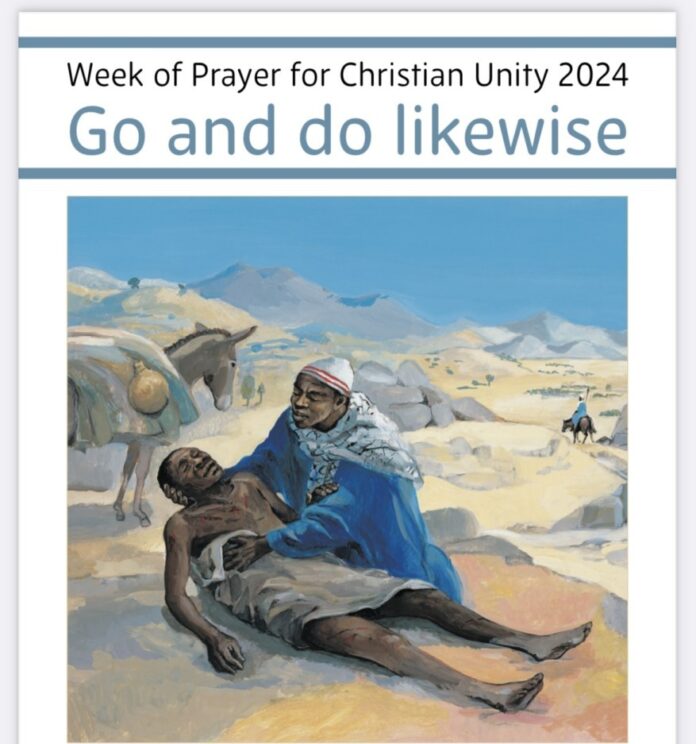This reflection is based on the Mass readings for Saturday 20th January.
In the week of Prayer for Christian Unity today’s readings are – to say the least – a poor platform for praying for and promoting unity. They provide plenty of food for thought, particularly when the joint video message of the Archbishops of Armagh is ‘Go and do likewise’. In the first reading we hear David’s ‘lament over Saul and his son Jonathan’ – ‘How did the heroes fall and the battle armour fail?’ This is the post battle cry of those who live – and die – by the sword or more modern weapons of warfare. Of course, heroes are hailed on both sides of any conflict. In the Gospel we hear how the relatives of Jesus wanted ‘to take charge of him, convinced he was out of his mind’. Perhaps they have listened to the lament of the Psalmist in today’s text that ‘you have made us the taunt of our neighbours’. Whatever its roots and repercussions, it is fairly tough, even rough, language about Jesus which cannot be simply explained away.
The Gospel brings divisions, that is definite. Readers and hearers have to make sense of Jesus’ declaration in Matthew – ‘I have not come to bring peace, but a sword’ (10:34) – which is followed by a description of disruption, even division, in family relationships. However, reference to the sword here is not to weapons the disciples of Jesus will wield but rather the rejection and suffering, even martyrdom they will have to undergo themselves. As one commentator states, ‘Jesus’ call to a new righteousness will inevitably bring division…[and] when the faithful confront injustice, division and estrangement follow’.[1]
The call – ‘Go and do likewise’ – is to imitate the Good Samaritan, not those who ignored the injured man, because ‘he was moved with pity’ (Lk 10:33). Joseph A. Grassi comments that ‘here the divine mercy works even through someone traditionally regarded as an enemy’.[2] This vision of compassion lies at the heart of Christian Unity.
Christians and churches can both work for and witness to the desire of Christ ‘that they may all be one’ which is contained in His Priestly Prayer in the Gospel of John (17:21). This divine draw that ‘As you, Father, are in me and I am in you, may they also be in us’ (17:22) means being called to communion with God. In this week (and every week) Christians would do well to ponder, pray and practice these words of Pope Francis:
Being Church means being God’s people, in accordance with the great plan of his fatherly love. This means that we are to be God’s leaven in the midst of humanity. It means proclaiming and bringing God’s salvation into our world, which often goes astray and needs to be encouraged, given hope and strengthened on the way. The Church must be a place of mercy freely given, where everyone can feel welcomed, loved, forgiven and encouraged to live the good life of the Gospel.[3]
(Kevin O’Gorman SMA)
[1] R. Alan Culpepper, Matthew – A commentary, (Louisville, KY: Westminster John Knox Press, 2021), 208.
[2] Jesus is Shalom – A Vision of Peace from the Gospels, (New York: Paulist Press, 2006), 111.
[3] Evangelii Gaudium – The Joy of the Gospel, 2013, par. 114.

